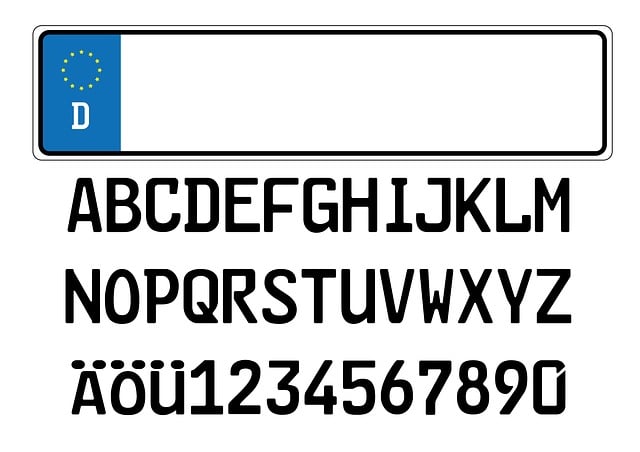To ensure your business or professional practice adheres to all licensing requirements, it's crucial to consult with a specialized lawyer who can navigate the complex legal landscape. This attorney will guide you through understanding the necessary licenses for your industry, the regulatory bodies involved, and the compliance standards you must meet. They will help you secure the right permits efficiently and cost-effectively, while also keeping you informed of any changes in state, federal, or international regulations that could impact your licensing status. Regular legal counsel is vital to maintaining a compliant operation, preventing legal issues before they arise, and staying ahead of regulatory changes throughout the duration of your license. A lawyer with expertise in licensing law will ensure you fulfill all obligations and avoid unintended infractions, guiding you from initial application through ongoing compliance, thus protecting your professional standing and business from potential disruptions due to legal non-compliance.
navigating the complexities of industry-specific licensing is a critical step for professionals aiming to practice within regulated fields. This article demystifies the legal landscape and provides actionable guidance on securing the necessary credentials. From understanding the nuances of licensing requirements to the pivotal role of legal counsel, this comprehensive guide will equip you with the knowledge to comply with relevant laws and obtain your industry-specific license with confidence. Embark on a journey through the legal frameworks that govern your profession and learn how a lawyer’s expertise is indispensable in ensuring regulatory compliance.
- Understanding the Licensing Landscape in Your Industry: An Overview
- Key Legal Considerations for Obtaining an Industry-Specific License
- Steps to Secure an Industry-Specific License: A Practical Guide
- The Role of a Lawyer in Navigating Licensing Regulations and Compliance
Understanding the Licensing Landscape in Your Industry: An Overview

Navigating the licensing landscape within your industry is a pivotal step for any business looking to operate compliantly and effectively. A comprehensive understanding of the laws governing licenses in your sector is indispensable. This involves recognizing the types of licenses required, the regulatory bodies that issue them, and the compliance criteria that must be met. Engaging with a knowledgeable lawyer who specializes in licensing for your particular field can provide clarity on these matters, ensuring that you are adequately prepared to secure the necessary permits without unnecessary delay or expense.
The legal framework surrounding licenses is intricate and varies significantly across different industries. It is imperative to consult with a licensed law professional who can guide you through the complexities of state, federal, and sometimes international regulations that govern licensing within your industry. This expert advice will help you identify any potential hurdles and ensure that your business operations are fully compliant with all relevant laws and statutes. A lawyer well-versed in licensing issues can also assist with proactive measures to safeguard your business against future legal challenges related to the proper acquisition and maintenance of licenses.
Key Legal Considerations for Obtaining an Industry-Specific License

Navigating the legal landscape to obtain an industry-specific license requires a thorough understanding of the relevant laws and regulations. Prospective licensees should consult with a knowledgeable attorney who specializes in the area of interest to ensure compliance with all licensing requirements. This includes understanding the specific statutes, case law, and administrative rules that apply to the particular industry. Legal considerations encompass not only the application process but also the ongoing compliance obligations post-licensure. An experienced lawyer can guide applicants through the complexities of these legal frameworks, from the initial application to maintaining the license over time. It is crucial to stay abreast of any changes in the law that could affect licensing status or the ability to conduct business legally within the industry. Regular consultation with a lawyer well-versed in these matters is essential for both securing and retaining an industry-specific license.
Steps to Secure an Industry-Specific License: A Practical Guide

Navigating the process of securing an industry-specific license requires a clear understanding of both the legal framework and the specific demands of your chosen field. The journey begins with thorough research to identify the exact type of license you need, as mandated by law within your jurisdiction. This initial step is crucial, as operating without the appropriate license can lead to significant legal repercussions. Once you’ve pinpointed the necessary license, engage a competent lawyer who specializes in licensing matters for your industry. Their expertise will be invaluable in guiding you through the requirements, which may include educational qualifications, work experience, or passing specific examinations. The lawyer will also assist in ensuring all applications are completed accurately and submitted within the prescribed timeframes to avoid delays. Subsequent steps involve background checks, fees, and possibly an interview process where your competence and intent to operate ethically can be assessed. Throughout this process, your lawyer will act as a mediator, advocate, and advisor, ensuring that all legal aspects are covered and that your application aligns with both the letter and spirit of the law.
The Role of a Lawyer in Navigating Licensing Regulations and Compliance

When embarking on obtaining a professional license, the guidance of a seasoned lawyer is invaluable. A lawyer well-versed in licensing law can navigate the complex regulatory framework that governs industry-specific credentials. They provide counsel on the legal requirements and obligations associated with holding such licenses, ensuring clients meet all necessary criteria to avoid legal pitfalls. Their expertise lies in interpreting statutes, regulations, and case precedents relevant to your field, thereby facilitating a smoother application process and reducing the risk of compliance issues post-licensure.
Moreover, a lawyer’s role is not confined to the initial licensing process; they are instrumental in maintaining ongoing compliance with industry-specific laws throughout the duration of your professional practice. They keep abreast of changes in legislation that may affect your license and advise on necessary steps to maintain good standing. This proactive approach helps safeguard your professional reputation and business operations from disruptions caused by non-compliance, ensuring your legal and practical activities align with current standards and regulations.
Navigating the complexities of industry-specific licensing is a critical step for any professional looking to operate within regulated sectors. This article has provided a comprehensive overview of the legal terrain, emphasizing the importance of understanding the licensing requirements that govern your industry. By following the outlined steps and consulting with knowledgeable legal professionals, you can secure the necessary licenses to conduct your business lawfully. A competent lawyer is indispensable in this process, offering guidance to ensure compliance with the relevant laws and regulations. In conclusion, obtaining an industry-specific license is a multifaceted endeavor that demands attention to detail and expert legal advice. With the insights presented here, you are now better equipped to embark on this path with confidence and clarity.
